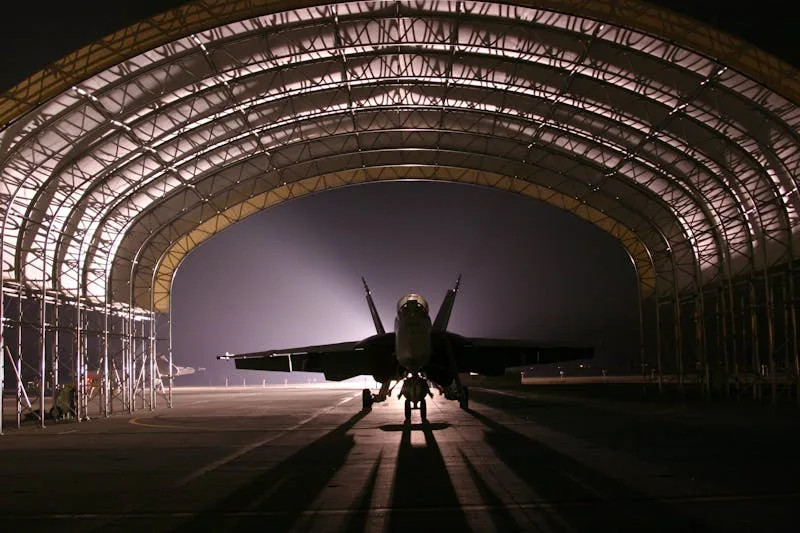Welcome to the first installment of our two-part series on the International Traffic in Arms Regulations (ITAR). In today’s globalized world, safeguarding sensitive military technologies is more critical than ever. ITAR plays a pivotal role in controlling the export and import of defense-related articles and services listed on the United States Munitions List (USML). If your business engages with items or services on the USML, understanding ITAR is not just important – it’s essential.
In Part 1, we’ll delve into what ITAR is, its scope focusing on the USML, and how to determine if your business needs to comply. Part 2 will address the challenges of compliance, the consequences of non-compliance, and practical steps to ensure your business adheres to these complex regulations.
What is ITAR?
The International Traffic in Arms Regulations (ITAR) is a set of U.S. government regulations administered by the U.S. Department of State’s Directorate of Defense Trade Controls (DDTC). ITAR governs the export, temporary import, and brokering of defense articles and defense services specifically listed on the United States Munitions List (USML).
The primary goal of ITAR is to protect U.S. national security and further foreign policy objectives by controlling the dissemination of sensitive military technologies. By regulating the manufacturing, exporting, and brokering of defense-related items, ITAR ensures that these critical technologies do not fall into the hands of foreign adversaries or unauthorized parties.
Why is ITAR Important for Your Business?
If your company manufactures, exports, or brokers defense articles and services enumerated on the USML, you are legally required to comply with ITAR. Non-compliance can lead to severe civil and criminal penalties, (with civil fines up to $1 million per violation and criminal fines up to $1 million and 20 years imprisonment), and loss of export privileges. Therefore, it’s crucial for affected businesses to understand and adhere to these regulations.
Does Your Business Need to Comply with ITAR?
Determining whether ITAR applies to your business is a critical first step. Here are the types of businesses that typically fall under ITAR regulations:
- Aerospace Companies: Organizations that manufacture or export aircraft, spacecraft, satellites, or related components listed on the USML.
- Defense Contractors and Consultants: Businesses providing goods or services to the U.S. Department of Defense or other defense agencies involving USML items.
- Information Technology Firms: Companies offering IT solutions related to military or defense applications included on the USML.
- Universities and Research Institutions: Educational and research organizations engaged in projects involving defense technologies listed on the USML.
- Brokering Services: Intermediaries facilitating the sale or transfer of defense-related items on the USML, including dealings with foreign persons inside or outside the U.S.
Important Note: It is your responsibility to determine whether your products, services, or technical data are listed on the USML before engaging in activities that may be regulated by ITAR. The DDTC does not make this determination for your business post-registration. However, the DDTC does offer a Commodity Jurisdiction (CJ) process to help determine whether an item or service falls under ITAR or the EAR.
Understanding the United States Munitions List (USML)
The USML is a catalog of defense articles, technical data, and defense services that are subject to ITAR controls. The list is divided into 21 categories, ranging from firearms and military vehicles to spacecraft systems and nuclear weapons.
Some examples of USML categories include:
- Category I: Firearms, Close Assault Weapons, and Combat Shotguns
- Category IV: Launch Vehicles, Guided Missiles, Ballistic Missiles, Rockets, Torpedoes, Bombs, and Mines
- Category XV: Spacecraft and Related Articles
For a complete and detailed list, you should consult the Electronic Code of Federal Regulations (e-CFR) or the official DDTC website.
What Constitutes an Export Under ITAR?
Under ITAR, the term “export” has a broader meaning than merely shipping physical goods overseas. Exports can include:
- Physical Shipment: Sending defense articles out of the United States.
- Electronic Transmission: Transferring technical data via email, cloud storage, or other electronic means to a foreign person or entity.
- Verbal Communication: Sharing technical data or controlled information with foreign persons, even if the exchange occurs within the United States.
- Exports: Providing access to controlled technical data to foreign nationals within the United States is considered an export to their home country. (22 CFR § 120.17).
Defining Technical Data and Defense Services
Technical Data under ITAR includes:
- Information required for the design, development, production, manufacture, assembly, operation, repair, testing, maintenance, or modification of defense articles.
- Blueprints, drawings, photographs, plans, instructions, or documentation related to USML items.
- Classified information relating to defense articles and defense services.
- Software directly related to defense articles.
Defense Services involve:
- Assistance (including training) to foreign persons in the design, development, engineering, manufacturing, production, assembly, testing, repair, maintenance, modification, operation, demilitarization, destruction, or processing of defense articles.
- Providing military training to foreign units and forces, both regular and irregular.
Common Scenarios Requiring ITA Compliance
- Hiring Foreign Nationals: If your company employs foreign persons who may access technical data related to USML items, you must secure the appropriate export licenses.
- International Collaboration: Working with foreign partners or subsidiaries on projects involving USML items requires careful compliance measures.
- Trade Shows and Conferences: Displaying or discussing controlled defense articles or technical data in settings where foreign persons may be present necessitates adherence to ITAR regulations.
Conclusion
In conclusion, understanding ITAR is crucial for any business involved with defense-related articles and services. Compliance with these regulations not only safeguards national security but also protects your business from severe penalties. By familiarizing yourself with the USML and the scope of ITAR, you can ensure that your operations remain within legal boundaries.
In Part 2 of this series, we’ll explore the challenges businesses face in achieving ITAR compliance, the severe penalties for violations, and practical steps you can take to navigate these complex regulations effectively. We’ll also differentiate between ITAR and the Export Administration Regulations (EAR) to help you understand how “dual-use” items are regulated.
Navigating ITAR regulations doesn’t have to be daunting. At Vizius, our compliance experts are ready to help your business understand and meet these critical requirements. From assessing your ITAR obligations to implementing practical compliance measures, we’re here to support you every step of the way.
Ready to ensure compliance and protect your business? Contact Vizius today to learn how we can guide you in staying secure and compliant.


